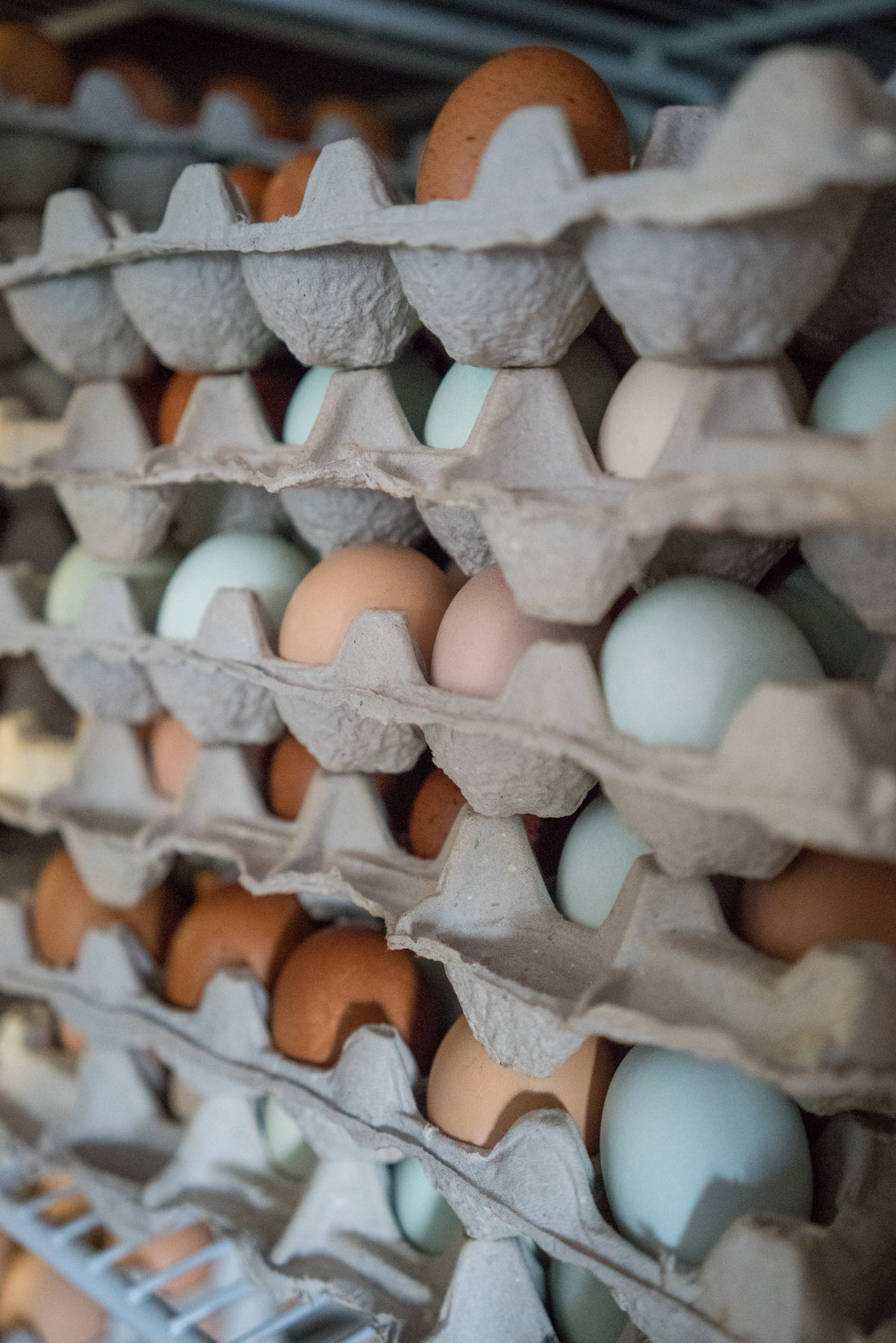
Deer Run Farm Present's The Egg-ucated Chicken's,
"Increase Hatchability Using Better Hatching Egg Care and Storage Practices"

Egg hatchability is affected by many factors including flock age, health status of flock, nutrition, shell quality, breed, environment, egg handling and most notably the age of the egg.
For breeders with small flocks that wish to hatch large quantities at a time, it’s necessary to collect fertilized eggs for over a week before having enough to fill an incubator. In this scenario, the older the eggs are before incubation begins the bigger the decrease of the hatch success rate. To ensure hatchability in eggs collected over a longer period of time it is important to practice good egg storage and care.

Embryonic viability during egg storage is due to the apoptosis (cell death) in the egg. The number of embryonic cells in an egg can remain stable for seven days in proper storage. After seven days the embryonic cell count will begin to decrease leaving the eggs at risk of not hatching. Maintaining a lower temperature and higher humidity during storage can dramatically improve cell viability for eggs stored long term.
Increase hatchability in eggs stored long term by:
- Selecting eggs with a minimum 1.75oz weight from a flock at least 22 weeks old. I, personally, recommend selecting eggs with a weight of 1.95oz to 2.30oz from an established flock of 34 weeks or older. (Small eggs will yield smaller chicks decreasing early livability. Too large eggs increase the likelihood of double-yolkers, which have significantly decrease hatch success rates.)
- Collecting hatching eggs a minimum of twice a day and more frequently on hot days.
- Getting collected eggs to cool storage within 6 hours of being laid.
- Maintaining cool storage of 59^F – 65^F with a humidity level between 70% and 80%.
- Using only clean eggs. Dirty, cracked or malformed eggs increase the potential of late embryo mortality due to possible bacterial infections in the egg.
- Storing eggs with pointy end down and air cell up.
- Sanitizing hatching eggs with products specifically developed for this purpose. A severely diluted Tek-trol solution is highly recommended for eggs that are washed and allowed to air dry. The Tektrol solution will dry on the egg’s shell leaving a thin film behind similar to the natural bloom that the hen will leave on her egg as she lays it.
- Considering using a technique called SPIDES for eggs collected over 14+ days. SPIDES: Short Period Incubation During Egg Storage. This technique has been researched and studied to prove that it can help increase hatchability by up to 25% on eggs stored longer than 7 days. The theory behind this technique derives from nature and the natural way a hen would collect a clutch of eggs prior to sitting on them to hatch.


1 comment